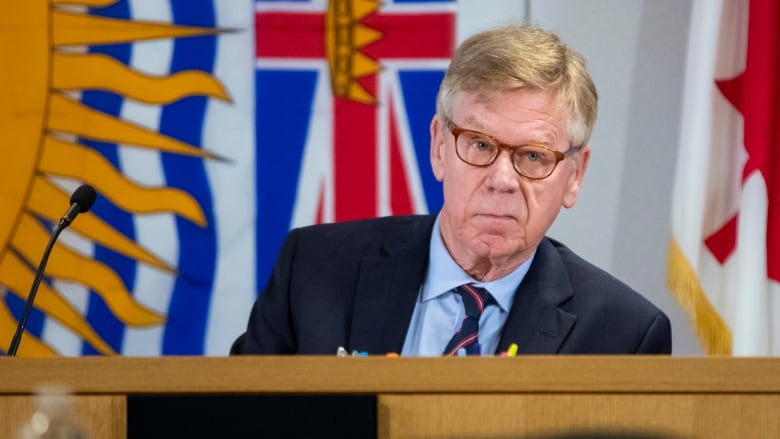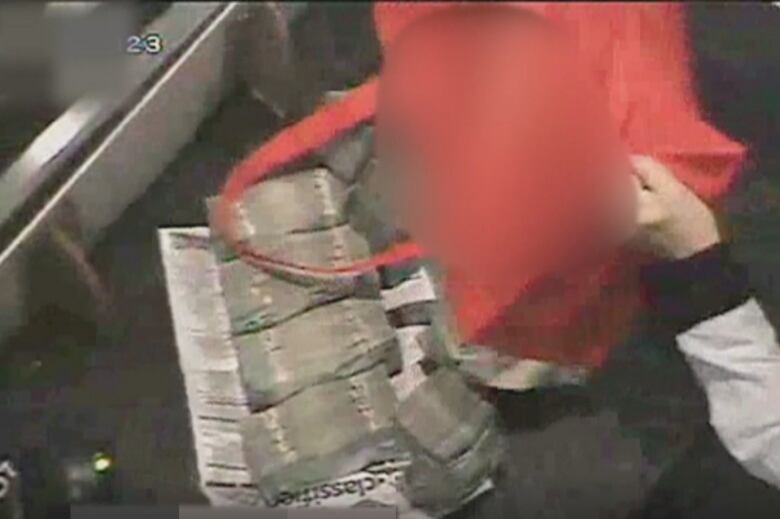Lawyer for whistle-blower claims anti-money laundering inquiry's integrity at stake
Ross Anderson's lawyer says former BCLC director unfairly faulted for leaking money-laundering concerns

The lawyer for a whistle-blower who sparked a commission into money laundering in British Columbia claims that unfounded criticism of his client threatens to undermine the integrity of the public inquiry.
Ross Aldersonhas been publicly faulted for leaking information to the media about the frustrations he experienced asformer director of the B.C. Lottery Corporation's anti-money laundering officea job he quit in 2017.
His lawyer, Paul Jaffe, told inquiry Commissioner Austin Cullen Mondaythat Aldersonstill believes he did the right thing by going public.
"Guilty as charged. Yes he did, and he would do it again tomorrow," Jaffe told Cullen.
Jaffeurged the commissioner to focus his finalreport on the shortcomings of the system meant to prevent money launderingas opposed to those of the individuals who complained about them.
"I suggest that the integrity of the commission itself is to some degree at stake by how people who have come forward and who have been described as whistle-blowers are treated."
'No one told them not to accept the cash'
Jaffe was not the only lawyer to raise the issue of whistle-blowers on the second of three days devoted to submissions from the more than two dozen individuals, organizations and governments with a stake in the proceedings.
Cullen, a B.C. Supreme Court justice, was appointedto lead the inquiry in 2019 after a string of reports detailed the flow of hundreds of millions of dollars through the province's casinos,the real estate industry, the drug trade and the luxury car market.

The commission concluded testimony last month, hearingfrom about 200 witnesses includingformer premier Christy Clark,cabinet ministers, police officers, gaming officials, financialcrime experts and academics.
The commission heard testimony that investigators had raised concerns more than a decade ago with gaming and government officials about increasing amounts of suspicious cash at Vancouver-area casinos.
Jaffe spoke after representatives defended the records ofboth the Great Canadian Gaming Corporation and Gateway Casinos andEntertainment Ltd.
Great Canadian lawyer Mark Skwarok told Cullen the casinos actedas service providers for the lottery corporation and in that role, it was their job to report suspicious activity, not to investigate it.
"While the company's obligation was only to report, it was not blind to the fact that cash could come from illicit sources. Great Canadian did question the origins of cash buy-ins with both BCLC and law enforcement," the company said in its written submissions.
"Great Canadian believed that the large cash transactions were suspiciousand reported them as such, but no one told them not to accept the cash."
In written submissions, lawyers for Gateway said there was no evidence the company "ever systematically failed to report transactions" or "otherwise failed to provide any information that wasor could have been usedto prevent, detect and deter money laundering or prevent the use of proceeds of crime in casinos."
Gateway's submissions also caution Cullen that the"gaming industry is highly susceptible to being the object of bias, particularly unconscious bias, relating to race, class, religion and other behavioural or cultural norms."
'The public aren't stupid'
Jaffe said those statements stood at odds with the images the public has seen of gamblers attending casinos with hockey bags full of cash.
"British Columbians live in B.C. They can see what's going on. They know that there has been a failure of the institutions of this province to protect the public interest," Jaffe told Cullen.
"The public aren't stupid. They know that's untrue."

Jaffe said Alderson has also been accused of damaging a computer and destroying evidence claims he said made no sense.
But Christine Mainville,counsel for former BCLCvice-president ofcorporate compliance Robert Kroeker, claimed Alderson's unfounded allegationshad ruined her client's reputation.
Mainville said Aldersonclaimedthat Kroeker told staff at the lottery corporation to "ease up" on anti-money laundering measures an accusationshe said was "false, entirely lacking in credibility and contrary to the objective evidence that the commission heard from numerous witnesses about Mr. Kroeker's integrity and the steps that he took."
"He has paid a heavy personal price," Mainville told Cullen. "One that we urge this commission to clearly and unequivocally put an end to."
Jaffe said Alderson, who now lives with his family in Australia, has also paid a price for his actions.
The lawyer read a portion of an email that he said represented a threat to his client's family and suggested that he had suffered some type of post-traumatic stress disorder.
"Mr. Alderson has no dog in the fight," Jaffe said.
"He has come forward because as he testified he just couldn't keep quiet with respect to what he has observed."
Mainvillecounteredthat Aldersonwas motivated to distance himself from the "very public but flawed public narrative," suggesting that authorities turned a blind eye to money laundering.
"People like to tend to be on the bandwagon," she said.












_(720p).jpg)


 OFFICIAL HD MUSIC VIDEO.jpg)
.jpg)



























































































